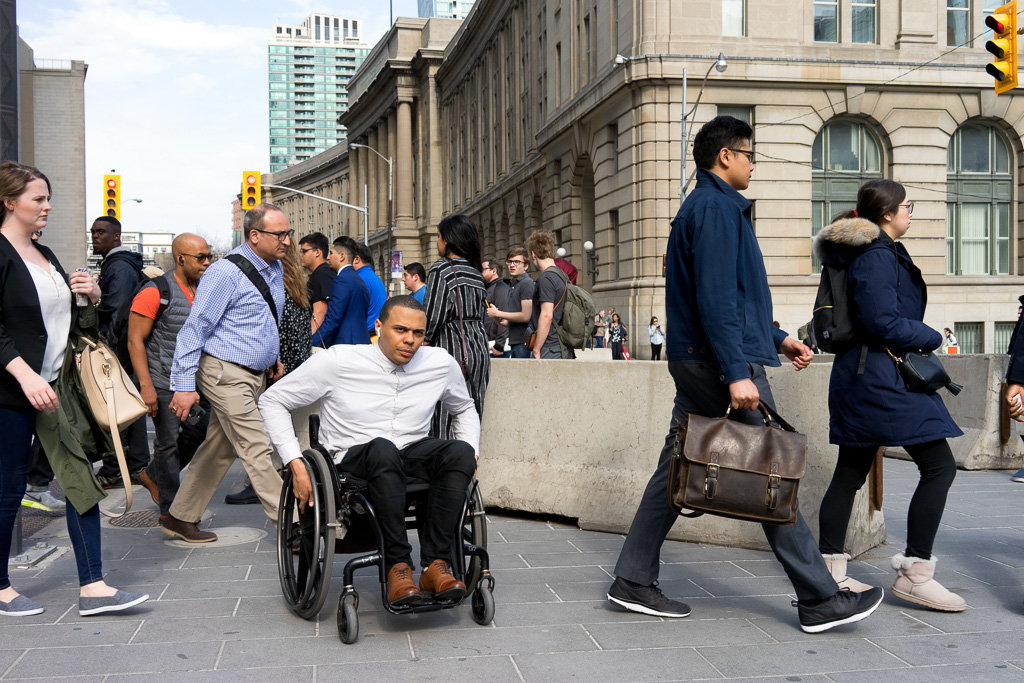After the Toronto van attack on April 23rd, 2018, when Alek Minassian drove a van down a Yonge Street sidewalk, killing 11 and injuring 15, the city took measures to ensure that such a thing could never happen again. While the city’s motives are laudable—after all, who wouldn’t support measures than ensure public safety?—nevertheless, implementation came with unintended consequences. The most obvious safety measure the city took was to drop concrete barriers at key intersections where there is high pedestrian traffic. Pedestrians could walk through gaps in the barriers, but the barriers were impassable to vehicles.
One key intersection the city identified was Front and Bay Streets where workers in the financial district move to and from Union Station for their daily commute. The intersection is 14 km away from the site of the attack, but I suppose it is best to err on the side of caution. I visited the intersection a week after the attack and observed how people passed through gaps in the concrete barriers. For most people, it was a minor inconvenience. But for others it was a challenge.
I don’t think this unintended consequence is an aberration. I suspect unintended consequences proliferate every time authorities implement prophylactic measures in the name of public safety. Perhaps this is because safety is not an absolute value, but is one of many variables in risk assessment. If we treat it as an absolute value, then all the other variables get thrown out the window.
After 9/11, the United States Government invoked public safety to secure its borders especially where passage across its borders happened by air travel. The measures it implemented soon became the global standard which means that virtually anyone who has traveled by air since September 11th, 2001 has found themselves subjected to these safety measures. Collectively, we have decided that other values, like privacy, sanctity of the person, and personal dignity, do not matter. However, increased surveillance at airports is a contributing factor in the rise of nationalism, anti-immigrant sentiments, Islamophobia, white supremacy, and general feelings of xenophobia. It is a deep irony that security measures have made the world less secure. Unintended consequences.
The global pandemic has produced a strange mirror image of this behaviour. I call it a mirror image because, while the behaviour is similar, it is reversed. One would think that concerns for public safety would motivate political leaders to err on the side of caution, especially given that today’s global political climate is emphatically conservative and conservatism tends to treat public safety as a plank in its law and order platform. But here we are, beginning our 3rd year of a global health crisis, and politicians both locally and around the globe tell us that we need to set aside our concerns for public safety. Other values, like economic prosperity, are more important.
The only thing I am certain of in all this is that unintended consequences will appear. It’s still too soon to say what these consequences will be, but as surely as the world turns, they will rear their pernicious little heads. I guarantee it.
